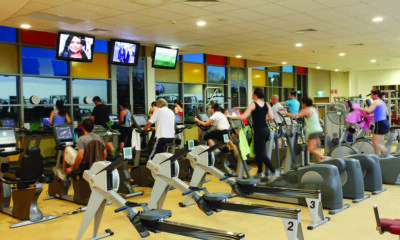Tech
why ai cannot replace humans
Technology has come a long way in recent years. We’ve seen major advances in fields like medicine, transportation, and communication. And with the rise of artificial intelligence (AI), it seems like there’s nothing that machines can’t do better than humans. But is that really the case? Can AI truly replace humans? In this blog post, we explore the reasons why AI cannot replace humans and why we need to be careful about its development.
What is AI?
There is a lot of hype around artificial intelligence (AI) and its potential to revolutionize businesses and society. But what exactly is AI?
In its simplest form, AI is a branch of computer science that deals with the creation of intelligent agents, which are systems that can reason, learn, and act autonomously.
However, AI is much more than that. It also encompasses machine learning, which is a method of teaching computers to learn from data without being explicitly programmed. This enables computers to identify patterns and insights in data that humans might miss.
Applications of AI are vast and range from helping humans make better decisions to automating repetitive tasks. For businesses, AI can be used to improve customer service, increase efficiency and productivity, and gain a competitive edge.
AI has the potential to transform our world in ways we cannot even imagine. But it’s important to remember that AI is still in its infancy and there are limits to what it can do. It cannot replace human beings entirely – at least not yet.
Pros and Cons of AI
There are both pros and cons to incorporating AI into various aspects of our lives. On the plus side, AI can help us automate repetitive or tedious tasks, freeing up our time for other pursuits. Additionally, AI can sometimes make more accurate decisions than humans thanks to its ability to process large amounts of data quickly and without bias. However, there are also some disadvantages to using AI. For example, if we rely too heavily on AI to make decisions for us, we may lose important creative and critical thinking skills. Additionally, AI systems are often opaque in their decision-making processes, making it difficult for humans to understand how or why they arrived at a particular conclusion.
How AI is changing the workforce
There is no doubt that artificial intelligence (AI) is rapidly evolving and growing more sophisticated every day. With the rapid expansion of AI capabilities, many people are concerned about the future of the workforce – will AI eventually replace humans?
The truth is, AI is already changing the workforce – but it is not replacing humans. Instead, AI is augmenting human workers and providing them with new tools to be more productive and efficient. For example, AI-powered chatbots can handle customer service inquiries quickly and accurately, freeing up human customer service reps to handle more complex issues.
In many cases, AI is actually creating new jobs for humans rather than replacing them. For instance, businesses need data scientists to train and oversee AI applications. As AI becomes more ubiquitous in society, there will be a growing demand for experts who understand how to use and control this powerful technology.
So while it’s true that AI is changing the workforce, there’s no need to worry about it replacing humans anytime soon. Instead, we should embrace the ways in which AI can help us work smarter and faster – because at the end of the day, that’s good for everyone involved.
What jobs will be replaced by AI?
The notion that artificial intelligence (AI) will eventually replace humans in the workforce is a common one. However, there are several reasons why this is unlikely to happen. For one thing, AI is far from being able to match human intelligence. While AI can perform some tasks more efficiently than humans, such as data processing and analysis, it still falls short when it comes to creativity and critical thinking. Furthermore, even if AI were to become more intelligent than humans, it is doubtful that it would have the same emotional capacity as humans. This means that AI would not be able to empathize with or understand human feelings, which would limit its ability to work effectively with people.
In addition, many jobs that are seen as being at risk of being replaced by AI actually require a human touch. For example, jobs such as healthcare and education rely heavily on personal interaction between workers and patients or students. This type of interaction cannot be replaced by AI. Finally, even if some jobs are replaced by AI, this does not mean that all jobs will be. There will always be a need for human workers in many industries, such as food service and manufacturing.
What jobs can’t be replaced by AI?
There are many jobs that can’t be replaced by AI, such as jobs that require human interaction, empathy, and creativity. For example, jobs like teaching, counseling, and nursing. While AI can provide support and assistance in these roles, they cannot replace the human element entirely.
Other occupations that are safe from replacement by AI include those that require physical labor or working with your hands. For now, machines are not able to replicate the dexterity and strength of humans. So jobs like construction work, manufacturing, and farming are safe for the time being.
Lastly, any job that requires critical thinking and problem-solving is also unlikely to be replaced by AI. As machines become more advanced, they may be able to handle some of the simpler tasks in these roles. But complex issues will still require the insight and intuition of humans to solve.
Conclusion
In conclusion, AI cannot replace humans because it does not have the ability to experience emotions or intuition. Additionally, AI does not possess the same level of creativity as humans. However, AI can complement humans by providing assistance with tasks that are repetitive or require a high degree of accuracy.
-

 Fashion8 months ago
Fashion8 months agoFashion designing scope in Pakistan
-

 Lifestyle4 months ago
Lifestyle4 months agoLifestyle photography ideas in 2022
-

 Lifestyle4 months ago
Lifestyle4 months agoCowboy Hat Styles and Their Creases
-

 Sports5 months ago
Sports5 months agoBest sports to play in high school
-

 Sports8 months ago
Sports8 months agoTop 10 Best Gyms In The World
-

 Tech5 months ago
Tech5 months agoHow to Fix League of Legends Disconnecting on Windows
-

 Health4 months ago
Health4 months agoHow to gain muscle for skinny guys at home
-

 Business4 months ago
Business4 months agoHow to start a real estate investment company